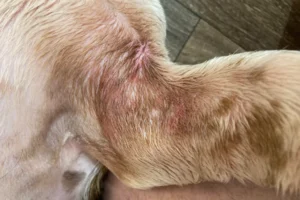Dogs’ mouths are cleaner than ours, but they still have bacteria. If a dog bites you and the wound itches, there are many possible reasons for this.
You could be allergic to saliva, but it could also be an infection because a dog’s mouth can be pretty unclean, and his bites can break the skin. It is natural for the bite to itch as it heals, but if the wound is numb, discolored, or not healing, this can become serious.
Most of the time, though, it is simply wound healing. However, infections happen, and if the wound is hurting or getting bigger, get to the doctor, especially if it is a stray dog bite. There are not many in the US, but it’s still an issue in some parts.
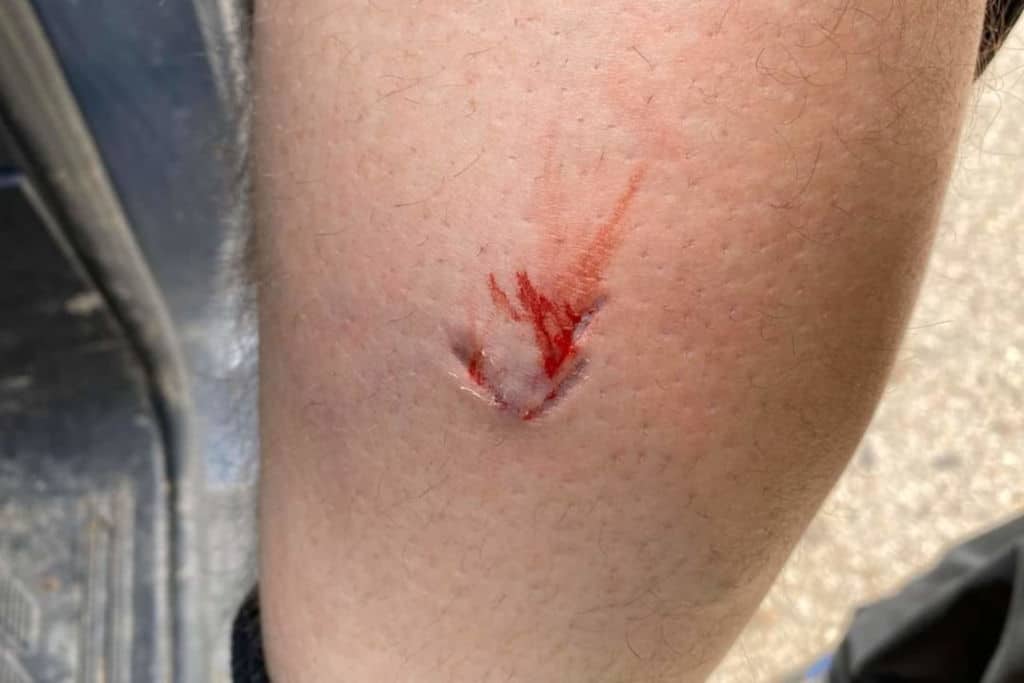
Why Itching Occurs After a Dog Bite
When your dog bites, there are various reasons why the wound may itch. You may be allergic to saliva, or your injury may be healing. However, you should consult a doctor if the incision is numb, discolored (black, blue), not healing after a week, or oozing pus.
Thoroughly washing the wound can help remove bacteria from the body and avoid infection unless it’s a deep wound. If the bacteria remain in the body, they can lead to illnesses like tetanus, rabies, or sepsis.
Most of the time, the wound is itching because it’s healing. The dog’s teeth made abrasions, and his saliva, dirt, or some other allergen got into them and irritated them.
The worst-case scenario is that the dog has rabies. If it’s your dog and it has been vaccinated, then this is a low risk.
But if a stray dog bit you, that’s a different thing. If it was also confused, disoriented, and possibly foaming at the mouth, you must get that wound cleaned and examined immediately. Rabies is lethal if symptoms appear, so getting tested as soon as possible is critical.
How Long Does It Take for a Dog Bite to Heal?
Most dog bites will heal between 10 and 14 days after they happen. However, depending on the severity of your dog bite injuries, it could take as little as seven days or as long as several months to heal. Only a doctor can tell you how long it will take.
For small wounds, you can use an antibiotic cream like Neosporin to ensure quick healing. Keep the wound clean, apply an appropriate bandage, avoid touching it constantly, and consult a doctor.
If you want a deep wound to heal quickly and well after the bleeding has stopped, apply pressure with a clean, dry cloth before bandaging the wound.
I got bitten two times. Both times I visited the doctor after a few hours and got tetanus shots and antibiotics. The doctor told me to look for infection symptoms like redness, swelling, warmth, an unpleasant odor, or whitish-yellow discharge.
How to Tell if a Dog Bite Is Healing or Infected?
Dog bite wounds are easily infected. If it looks red, swollen, hot, and sensitive tomorrow, or if you develop a fever, go to the doctor. Keep an eye on it while cleaning it with hydrogen peroxide.
Your main concern should not be the size of the bite but rather that it entered the bloodstream. Infections are prevalent with dog bites, so if the wound is uncomfortable and swollen the next day, I recommend seeing a doctor.
Only the doctor can safely determine how deep it has gone and provide you with treatment. It is up to you whether you want to delay visiting a doctor, but if it appears to be spreading an infection, I suggest you go.
Here’s an example of a dog bite that got infected
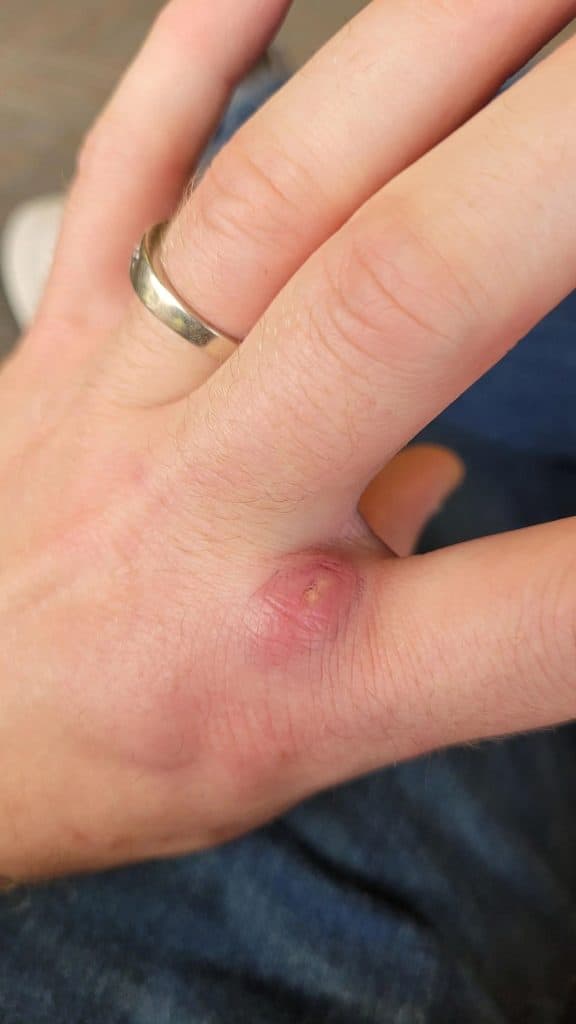
Bacteria can enter your body and “shell” themselves off, which is what that lump was.
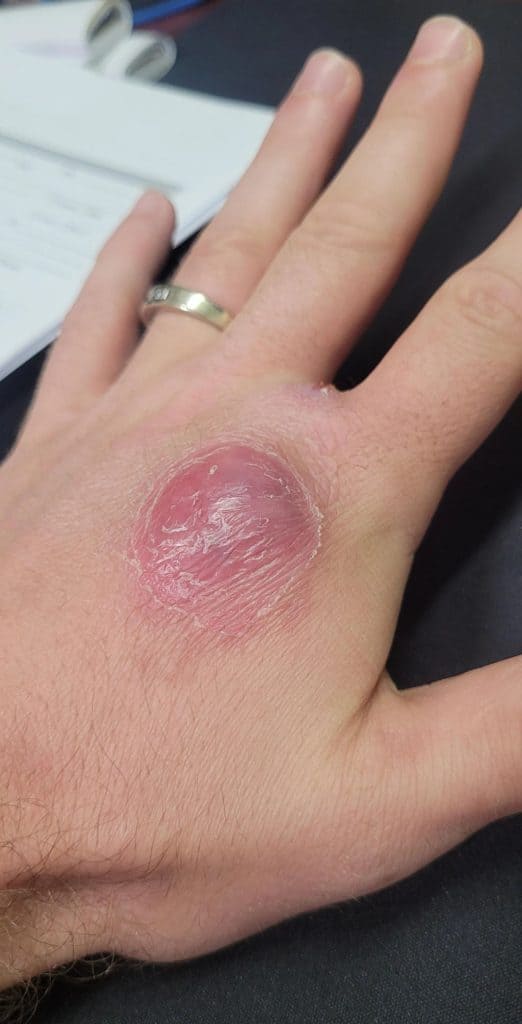
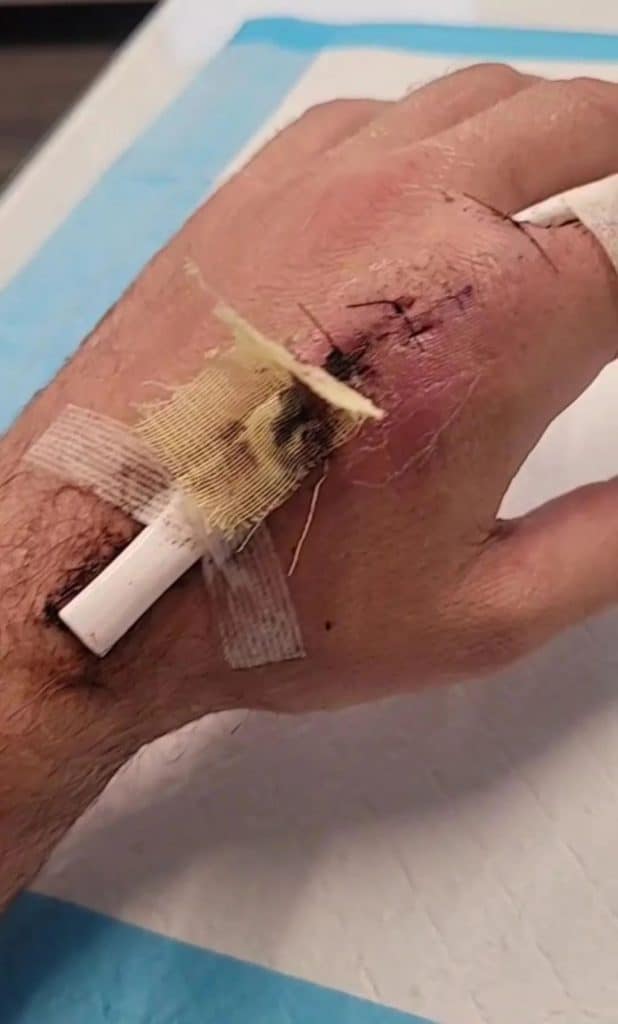
Deep dog bites require immediate medical attention, possibly not in the ER, but most likely a trip to the doctor the following day. Deep, untreated infection can quickly lead to surgery or amputation.
Keep in mind that vaccinating your dog will not prevent infection. It can only protect against diseases against which the dog has been immunized.
Please never use antibiotics without a prescription and follow the doctor’s instructions. You may be transforming yourself into a breeding ground for resistant microorganisms. This goes for your dog as well – visit the vet first.
What Helps With Itching After Dog Bite?
An antihistamine, such as Benadryl, or hydrochloride, such as Pramoxine, can reduce stitch itching. These two, when administered topically, help relieve pain and itching caused by insect bites, minor cuts, burns, and poison ivy. Ask your doctor before using these products.
You could also use an ice pack or cold compress to reduce itching. The cold temperature numbs the affected area and helps reduce the swelling that comes with it.
To allow for proper healing and minimal itching, avoid wearing tight clothing or accessories around the area and cover it with a bandage.
Keep in mind not to scratch your wound. Scratching an irritating wound may cause it to break open and slow healing, which means more healing and more itching.
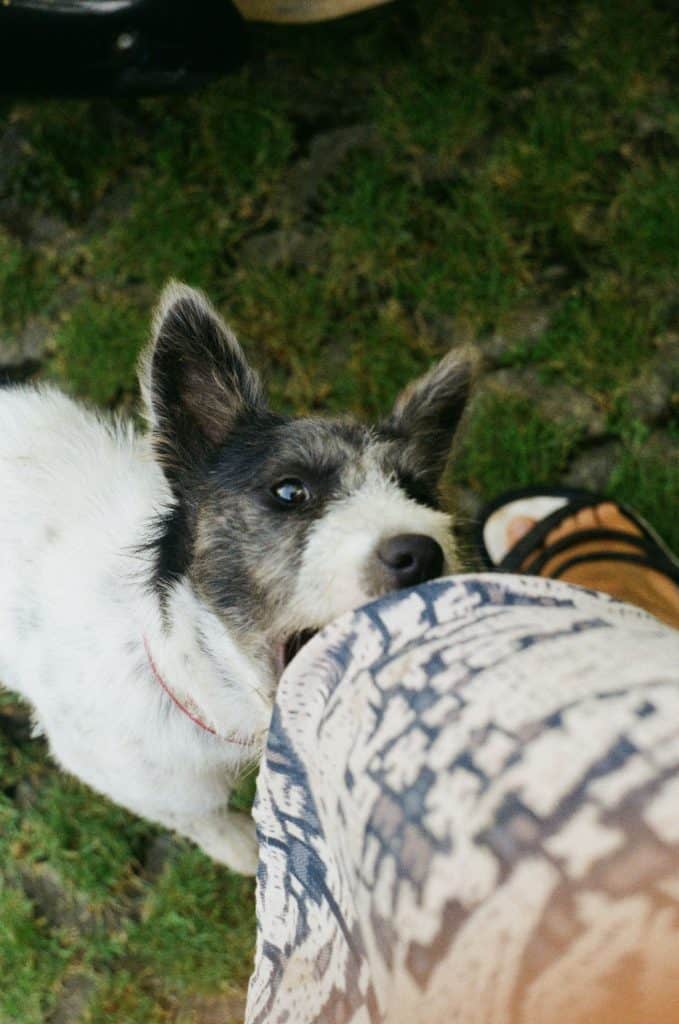
FAQs
What if there’s a lump under the skin after a dog bite?
If it’s not red, hot to the touch, or leaking, it’s most likely just part of the healing process. If the bump is painful and expanding, it could be an infection. Small lumps can quickly turn into an infection where you could require surgery or amputation.
Is swelling normal after a dog bite?
Swelling is common after a dog bite, but increased swelling after first aid can indicate infection. Any swelling, redness, or pain from an animal bite that lasts more than 24 hours could be a symptom of an infection, which could quickly progress to a more severe condition.
Do dogs feel guilty after biting someone?
There’s very little evidence that dogs feel sorry or guilty after biting. People enjoy anthropomorphizing. Videos of dogs acting guilty often show them simply responding to their owners by acting as terrified and submissive as possible so that their owners won’t yell at them or physically harm them.
If your dog is biting, try working on training your dog, and wearing gloves when playing with your puppy is also a smart alternative.
Alex, a passionate animal lover, has experience in training and understanding animal behavior. As a proud pet parent to two dogs and three cats, he founded AnimalReport.net to share insights from animal experts and expand his knowledge of the animal kingdom.

